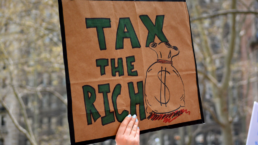By Danielle Smith, Public News Service
COVID-19 has touched just about every facet of life, and a new report from the Center for Responsible Lending says women repaying student loans have been hit especially hard.

The report says in particular, the pandemic exacerbated the financial instability of women of color, reducing their ability to repay their student-loan debt.
Report coauthor Sunny Glottman – a researcher with the Center for Responsible Lending – said in part, it’s a racial equity issue – and even the temporary pause in student-loan repayment hasn’t been enough to help many women catch up.
“One of the biggest things that happened was folks were losing their jobs,” said Glottman. “And whether it was they were losing their jobs because they were furloughed, because their company was struggling to keep its doors open; whether it was because they were working in a high-contact job and had someone at home who was immunocompromised.”
The report also says Black and Latina women have shown “immense resiliency” in tough financial times. But it found most don’t feel prepared to resume their loan payments without some difficulty.
The federal pause on student-loan repayment ends August 31.
The report recommends an across-the-board student-debt cancellation of $50,000 per borrower. In the meantime, Glottman said putting these payments on hold has absolutely helped women of color.
“Having one less bill to pay – your student loan monthly payment – was a huge help,” said Glottman. “I think our researchers were looking at whether these Black women will be better prepared to resume making payments, which I think is an argument that is not necessarily true.”
The report also says what is known as the Income-Driven Repayment or IDR plan may not be a good option for some women. The IDR promises cancellation of student debt after 20 or 25 years of repayment, but fewer than 200 people have had their loans forgiven.
Glottman said there may be a way to improve the program.
“So actually, one of our recommendations is to apply IDR retroactively – so, implemented in a retroactive, income-driven repayment waiver,” said Glottman. “So, what that would do is say, ‘If you’ve been doing the right thing, in years past, you should be able to qualify for income-driven repayment.'”
She added that women carry about two-thirds of the $1.7 trillion federal student debt. And Black women are more than twice as likely as white men to owe more than $50,000 in undergraduate debt.
Support for this reporting was provided by Lumina Foundation.
Recent Posts
Schumer, Jeffries Refuse to Join Democrats’ Growing Calls to Slash ICE Spending
January 10, 2026
Take Action Now “I just don’t understand how we provide votes for a bill that funds the extent of the depravity,” said Sen. Chris Murphy.By Julia…
Billionaire’s Mouthpiece Searches For Reasons To Avoid Taxing Billionaires
January 9, 2026
Take Action Now California is considering a referendum on whether to impose a one-time wealth tax on the state’s billionaires.By Jim Naureckas,…
All Democratic Presidential Candidates In 2028 Should Commit To Dismantling ICE
January 8, 2026
Take Action Now Since its inception, ICE has been designed to conflate issues of immigration with terrorist threats against the U.S.By Sam…
Trump Cuts Billions In Federal Childcare Funds For Democratic-Led States After Minnesota Fraud Scandal
January 8, 2026
Take Action Now Administration cites welfare fraud allegations as advocates and state leaders warn of political retaliation and sweeping harm to…




